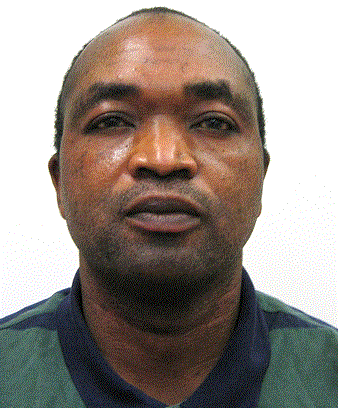
Supercapacitor: Store for the Future
19 June - 24 July 2023
Biography
Dr Kabir Oyedotun is a Research Fellow at the Department of Chemical Engineering, University of Pretoria, South Africa (February 2022 - July 2023), with undergraduate studies in Electronics and Solid-State Physics at the Department of Physics, Federal University of Technology, Akure, Nigeria (2006). In 2012, Kabir Oyedotun received his Master of Science (MSc) degree in Engineering Physics from the Obafemi Awolowo University, Ile-Ife, Nigeria. His enthusiasm in working with State of Art facilities propelled him to advance his academic degree studies in University of Pretoria where he obtained PhD degree in Physics with research subject on the “Synthesis and characterization of carbon-based nanostructured material electrodes for designing novel hybrid energy storage devices: supercapacitors and batteries” in 2018, and post-doctoral work at the Institute of Applied Materials, Department of Physics, University of Pretoria, South Africa (2019-2021). His research interests lie in the areas of carbon-based nanomaterials for supercapacitors and battery applications, including synthesis and characterization. At present, Dr Oyedotun’s scientific research group develops new nanostructured carbon materials such as activated carbon, nanotubes, graphene and reduced graphene oxide, and onion-like carbon among others. He works on the hydrothermal synthesis of carbon nanostructures and composites along with applications of carbon nanomaterials for energy storage devices applications. He has co-authored and authored over 50 peer-reviewed papers in highly rated impact factor journals.
Kabir was visiting researcher in the Sustainable Materials research group at the Department of Chemical Engineering, KU Leuven University, Belgium, hosted by Prof. Dr. Wim Thielemans (February – April 2023) on the platform of Stay in Flanders Fellowship Programme. He was appointed the Guest Editor of the Special Issue "Advances in Polymer Applied in Batteries and Capacitors" MDPI journal, Polymers, in January 2022.
Research summary
Everyone knows we need better batteries - in our mobile phones, laptops, and many other devices that are part of our daily lives. There is a need to develop different types of energy storage devices that will show better performance over longer periods of time. This is especially true in areas of the world where people do not have access to steady supplies of electricity - and are very reliant on having good ways to charge multiple devices. Batteries store energy chemically by an internal charge accumulation process that leads to high energy density and storage capacity but suffers poor power delivery and short life cycles. In contrast, capacitors with superb power capability, fast charge propagation kinetics and long-life cycles with low maintenance cost, are limited by low energy capability. Innovative research into development of sustainable hybrid energy storage devices combining the advantages from both capacitors and batteries into efficient/portable devices is urgently required. I
In this project, we seek to employ multi-dimensional redox-active porous materials (RAPMs) in hybrid supercapacitors, based on synergistic effects between traditional capacitors and LIBs storage mechanisms, to address the challenge of combining exceptional power and energy density in a single device. These devices will, with some exciting and very useful new molecular sponge-like materials in their electrodes, be able to provide a lot of power over a very long period. Such high performance should be possible because of the interesting properties that these sponge-like materials have. We will therefore be exploring new materials, new types of devices, and very detailed investigations into the factors that will be useful to create these much-needed new devices. With strong connections into Nigeria, South Africa and other African countries, this project aims to be able to connect local communities with new devices - and contribute to improving their lives.
Dr Oyedutin will be hosted by Professor Charl FJ Faul from the School of Chemistry.
Planned activities include: